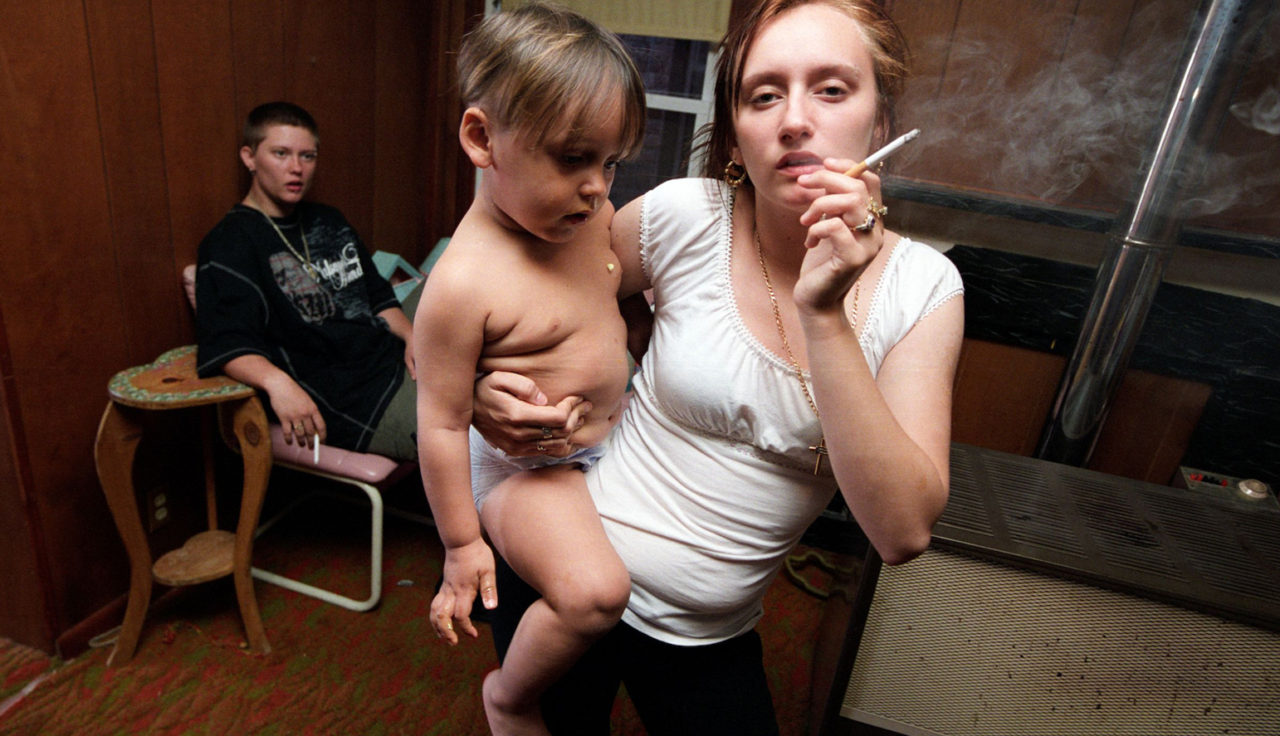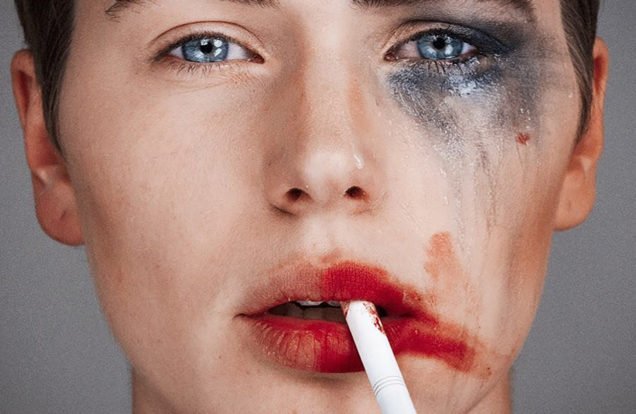Upstate Girls
Life in the Harshest World


Brenda Ann Kenneally’s photography book, Upstate Girls, throws two middle fingers in the faces of Instagram’s airbrushed babydolls. While social media binges on mink eyelashes, Botoxed brows and luxury collections of every persuasion, Kenneally’s photography records the grating realities of women in upstate New York, where living below the poverty line is more pervasive than exceptional.
Maybe because we surround ourselves with so much stereotypical beauty (even our most taboo kinks are still gorgeous, merci), the starkness of this body of work drains all the photoshopped opiates from our bellies. These photos make us feel hunger – make us sit with the crawling starvation that comes with being unseen.
They make us feel the subjects’ pain.
“For the past nine years I’ve been working in Troy, New York documenting the lives of the women that live on a single block there,” Kenneally writes. “My mission is to share with audiences what I have learned about the culture of class separation in the United States and the evolution of social policies that have shaped it.”
Troy, New York is a community with a prominent population of single women. These women took up work alongside men during the industrial revolution, and felt the loss of America’s factories in a terrifying and tangible way. Their economic realities are compounded by the natural assaults of brutal winters, as well as the loneliness that comes from a high incarceration rate. The job prospects in Troy are bleak. Life is hard. It wears all the color away from the women’s faces – or maybe it’s that we’ve grown too accustomed to the blushed visages of models in magazines.
And that’s what makes this work important.
“For many of us a successful life is acquiring the emotional fortitude to get from one safe space to the next,” Kenneally continues. “The love of a good dog, sparkly underwear from Wal-Mart, Spongebob, coffee, cigarettes, kids and sex…lots of sex are oasises in the post-industrial state of Troy. I understand this because it’s the world I grew up in.”
We’re beginning to understand, too, and we invite you to try.










